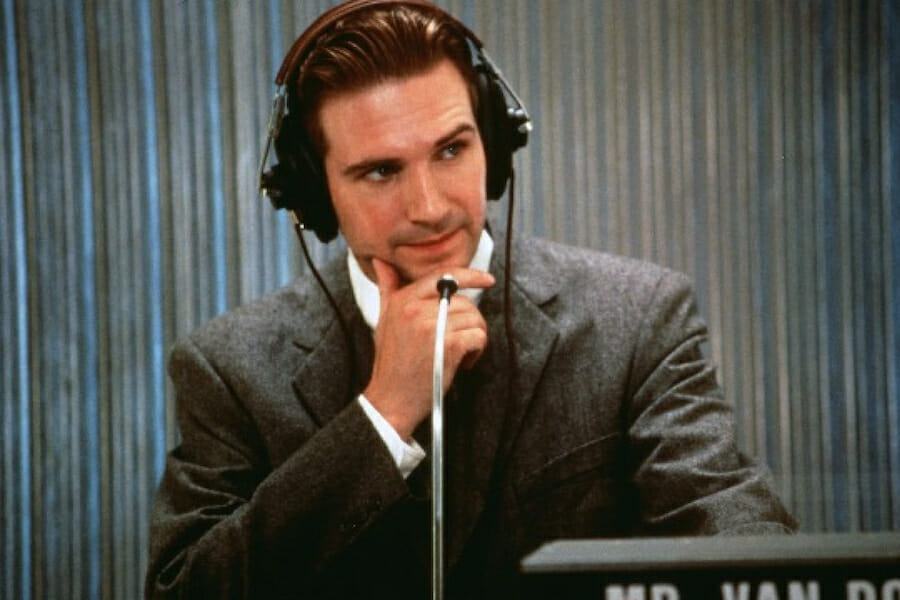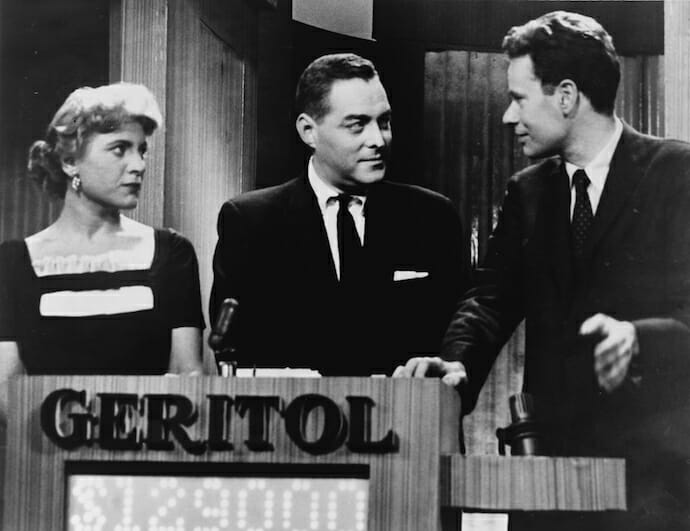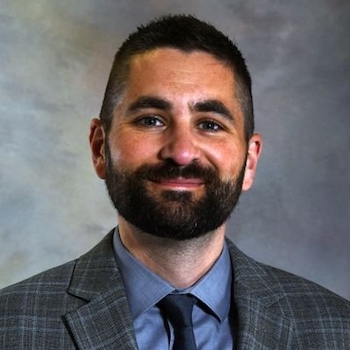
Media
Social Media’s “Van Doren Moment”
“I Have Deceived My Friends…”
In what could be described as one of the most eloquent confessions in U.S. history, in November 1959 Charles Van Doren would abruptly curb his tenure as a darling of American television by finally admitting his role in a scandal that had been simmering for the past several years. The handsome, well-pedigreed everyman, whose initial appeal would only aggravate the subsequent outrage, became the face of the greatest con that had yet been perpetrated against a mass audience: the fixing of television quiz shows.
“I was involved, deeply involved, in a deception,” the contrite college instructor muttered. Singled out for his attractiveness and affability by the producers of the NBC quiz show “Twenty One,” Van Doren’s improbable winning-streak had captured popular imagination and carried him upon a wave of notoriety. The game show was a veritable phenomenon, netting tens of millions of viewers per week—colossal numbers for an era where the television had only recently become a focal point in the American household—and Van Doren had become its unassuming emissary.
“The fact that I, too, was very much deceived cannot keep me from being the principal victim of that deception, because I was its principal symbol,” he continued. His initial ambition to match wits with competitors in what was essentially a high-stakes, on-camera bout of Trivial Pursuit had somehow yielded to greed and ego. He wasn’t the only one: quiz show producers—under heavy pressure from their sponsors and networks to sustain a sales and ratings coup—had systematically fed Van Doren and other contestants the answers to the questions ahead of time, rendering the contenders into mere actors, and thus accomplices. By 1959, a spate of accusations, revelations, and investigations had finally brought the ruse to a head, with the House Committee on Interstate and Foreign Commerce reviewing the matter. As one of a long list of testifying witnesses, and amidst a throng of public onlookers, Van Doren forthrightly proclaimed, “I have deceived my friends, and I have millions of them.”
Ironically, rigging a game show was not illegal. In fact, “Twenty One” and other quiz shows symbolized a culmination of capitalism and free speech on full and joyous display to millions of captivated viewers. As with so many scandals, the only real crime was in the cover-up; a handful of former contestants and a producer were indicted for perjury for lying to investigators. Beyond that, the whole affair resulted in a notional pledge by the television networks to exercise more strident oversight over programming—a tacit admission that producers and sponsors had been given too much free rein. Incidentally, those sponsors neither lodged a complaint, nor admitted any culpability. In the end, the bulk of the fallout fell squarely on Van Doren and his fellow contestants, who lacked the political and market sway of the networks and their sponsors to stave off the blame, which simply followed the path of least resistance.
However, the affair did amend, if not codify, a social compact between the state, the public, and the broadcasters. Legislators recognized a blurry line between free speech and false advertising; the public learned the hard way to apply a more healthy dose of skepticism toward the television; and broadcasters acknowledged the connective tissue between legitimacy and profit. Particularly since television represented an age where technological advances were certain to outpace their ability to be comprehensively governed, more rigorous self-policing—driven by a sense of duty to the public—was the only fix deemed truly workable.
The common thread woven throughout the 1959 Congressional inquiry was the need to update this social compact. Federal Communications Commissioner Robert Bartley submitted in an affidavit for the record stating that “the broadcaster has a sobering responsibility and a rare opportunity for contribution to the advancement of our democratic way of life. In his own community, every broadcaster can, if he wishes, become a statesman…” Federal Trade Commissioner Earl Kintner reinforced that sentiment, charging the television executives to consider that their “responsibilities not only extend toward…the laws on the books, but also extend toward protecting the good name of their industry.”
With sixty years’ hindsight, the quiz show scandal now seems downright quaint, to be dwarfed in scope and significance by public outrages in the decades to come. However, the historical parallels with the present day are striking and instructive. Here in 2018, a technological medium has emerged from infancy to capture the collective imagination. Advertisers and producers have converged upon it, breeding deceit and leaving a stain on a national tradition. Regulators and legislators want answers, and are formulating remedies. A humiliated American public faces a reckoning. Social media has rendered its users simultaneously the victims and the symbols of deception. We’re all Charles Van Doren now.
“…and I Have Millions of Them.”
Social media giants like Facebook, Google, and Twitter all operate on algorithms. While infinitely more complex than those used by cunning quiz show producers in the late 1950s, the underlying arithmetic is the same: identify the market; generate compelling content; and sell the product. Today, the lines between producer, consumer, and product are blurred almost completely, as the platforms brilliantly allow us to operate as all three. However, when disinformation is introduced into the algorithm—for instance, to meddle with the outcomes of something as trivial as a game show or as consequential as a presidential election—calls for stricter regulation will inevitably follow. Given that social media represents an ever-evolving social and commercial experiment, concrete ideas to legislate it are fragmentary and hotly debated.
So it was last October 2017, when the Senate Judiciary Committee grilled social media giants Facebook, Twitter, and Google—a spectacle for which the quiz show hearings of 1959 were downright prescient. The American public—galvanized now as it was then by revelations of disinformation spread via its favored outlet for news and entertainment—is no closer today than it was sixty years ago to legislating its way out of its vulnerability to such wide-scale deceit. However, the same forces that existed then can be called upon now to once again update the social compact—now global in scope. Social media companies should do more to lead that process.

For starters, governments cannot, and should not, be called upon to counter the scourge of disinformation by wading into content regulation. Free speech and the free flow of information are cornerstone values that should be held sacrosanct. Social media giants like Facebook, Google, Twitter, and others rightly champion those rights—but should do so for human beings exclusively. Automated “bots” and machine-based interactions that rig and distort the marketplace of ideas must be exempt. This distinction has helped curb abuses in other web-based industries, while a greater emphasis on the genuine human element behind social media would move the conversation away from a false dichotomy pitting free speech against simple wire fraud, with no nuance in between.
Instead, the same path of least resistance taken in 1959 is being wandered yet again, with the public bearing the bulk of the burden to right an industry wrong. While groups such as the Atlantic Council’s Digital Forensic Research Lab and the Alliance for Securing Democracy’s Hamilton 68 dashboard have made impressive strides toward exposing disinformation as it occurs—the necessity for such services itself symbolizes a shameful abrogation of responsibility by social media giants toward their users. Not only is such a head-in-the-sand approach ethically tone-deaf, it may also prove damaging to their profitability in the long run.
Moreover, a recent RAND Corporation study labeled social media a driver of so-called “truth decay”—the erosion of our collective ability to identify, interpret, and trust established fact. Reversing that label should become a core mission for social media platforms, whose help is sorely needed to establish a new cornerstone value for the Information Age: legitimacy. Unfettered access not just to information, but credible information, should be advanced as a human rights issue. Facebook, Google, and Twitter, et al should be the preeminent “statesmen” to advance such a noble cause.
Unfortunately, those companies appear to be grudgingly bringing up the rear. While a range of notional fixes to their platforms—including more transparency in sponsorship; more editorial oversight; and more prompt deactivation of fake accounts—are currently underway, such steps are far too narrowly aimed at curing the symptom, not the disease. Not to mention the inadequacy of such fixes to proactively posture the public to grapple with fast-evolving technologies—such as automation, artificial intelligence, and machine-learning—that will undoubtedly exacerbate the existential threat that disinformation poses to society’s already fraying sense of shared reality.
To more strategically approach the problem, we should liken it to the concept of foreign aid, according to disinformation expert Nina Jankowicz’s recent article for the Wilson Quarterly. She lobbies for concerted “capacity building,” which may be a “harder, longer process, but one that seeks to move beyond band-aids and vaccinate against the virus, prioritizing the citizens who fall victim to disinformation.” Prioritizing the citizens of the vast social network ahead of the network itself will help foster an online culture of resiliency against disinformation. Ideally, Messrs. Zuckerberg, Brin, Dorsey, and their compatriots in the tech industry—leaders of a global community by default, if not by virtue—would voluntarily update their social compact along similar lines. Not only should they refine the “terms of service” of their platforms to better regulate and disincentivize fraudulent content, but they should forge partnerships with governments, industry, and civil society to improve media literacy and counter mass deception by and amongst the millions they call “friends.”
Social media wields the power to shape civilizations—for better or for worse. The pioneers and icons of the industry should own that mantle more responsibly. Such leadership need not come at the expense of innovation or profit. NBC President Bob Kintner in October 1959 declared that the quiz show scandal “…was not good for broadcasting, for the public, or anyone—the industry is manned by competent people to maintain the public interest and keep the public trust.” So, too, should it be today.
